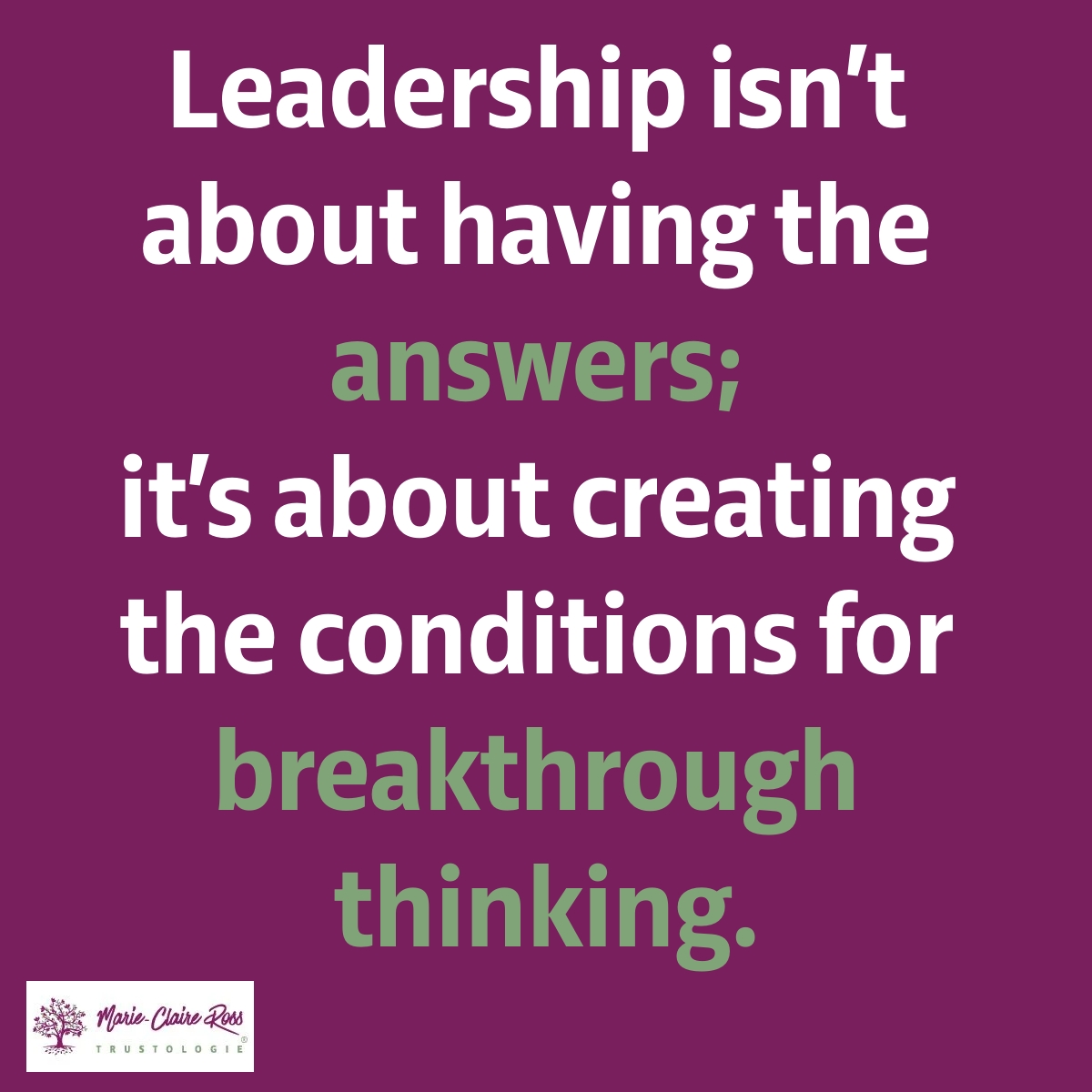7 min read
Navigating Difficult Conversations: 7 Steps for Emotionally Intelligent Leaders
Navigating difficult conversations at work isn’t just a “nice to have” leadership skill – it’s the fault line that often separates healthy,...
Develop leaders, strengthen executive teams and gain deep insights with assessments designed to accelerate trust and performance.

Transform how your leaders think and perform with keynotes that spark connection, trust and high-performance cultures.

Explore practical tools, thought-leadership and resources to help you build trusted, high-performing teams.

Trustologie® is a leadership development consultancy founded by Marie-Claire Ross, specialising in helping executives and managers build high-trust, high-performing teams.

4 min read
Marie-Claire Ross : Updated on February 9, 2023

What is becoming increasingly important is for leaders to focus on meaningful work.
Meaningful work can be defined as when employees understand the value of the work they do and how it links to the organisation’s mission.
3. Increases demand for jobs
A recent by BetterUp study found that 9 out of 10 workers are willing to trade a percentage of their lifetime earning for greater meaning at work. This was consistent across all age groups.
In fact, a Canadian study by ServiceNow, found that office workers would give up nearly $9,000 in their annual pay raise for a more fulfilling job. The top motivation for employees to perform well wasn't money or prestige – it was meaning.
It also adds further weight to the argument that promoting a higher than average salary isn't the right way to attract the best employees. It also increases the likelihood of hiring entitled employees who keep asking for more money or resources without any doing any extra effort.
4. Increases employee engagement
When we are able to do work that matches our passions, not only do organisations see an increase in productivity, but also higher rates of job satisfaction and a happier workplace overall.
This is nothing new. McKinsey found that over the past 30 years, Americans have identified meaningful work as the most important aspect of a job—ahead of income, job security, and the number of hours worked.
What is new is that we live in a world with escalating burnout, stress and turnover levels. While meaningful work can't stop overload, it can improve wellbeing and provide people with a more enjoyable employee experience. When it is combined with employee recognition and employee engagement activities that focus on the emotional value of work - it helps employees feel appreciated and part of something bigger than themselves.
Conveying the meaning of work is one of the least utilised tools a leader has in their leadership toolbox to avoid poor performance and disengagement. It comes down to reframing. Packing online orders is really about helping customers experience the delight of opening their new goods. Administration tasks are really about helping the organisation run more smoothly and meet regulations, so they can stay in business.
Leaders who work on communicating the meaning behind jobs create enormous value to themselves, their people and the company.
It calls for organisations to consider how all work tasks make a difference to people's lives and to find the right type of person who enjoys doing what other people consider a menial task. This requires leaders to lose the misconception that some jobs are unloveable and require tangible rewards.
What can you do to help people feel the meaning behind their work?
Don't miss out! Live today is my new webinar on 3 Indispensable Secrets to Leading Thriving, Capable Teams. Register now and you can also access the recording.

7 min read
Navigating difficult conversations at work isn’t just a “nice to have” leadership skill – it’s the fault line that often separates healthy,...

8 min read
When my daughter was 17 months old, she discovered a superpower: the word “Why?”For the next two years, it was her response to almost everything.

11 min read
I have a friend who often finds herself at the mercy of her emotions. Recently, she called me to rehash a confrontation she’d had with a group of...

One of the common issues companies have to deal with are silos forming between departments.

Meaningful work is something we all crave. When we understand the meaning in the work we do, it increases our engagement and intrinsic motivation. ...

In last week’s post, we talked about fostering psychological safety in your team to improve performance. But it’s only one component.